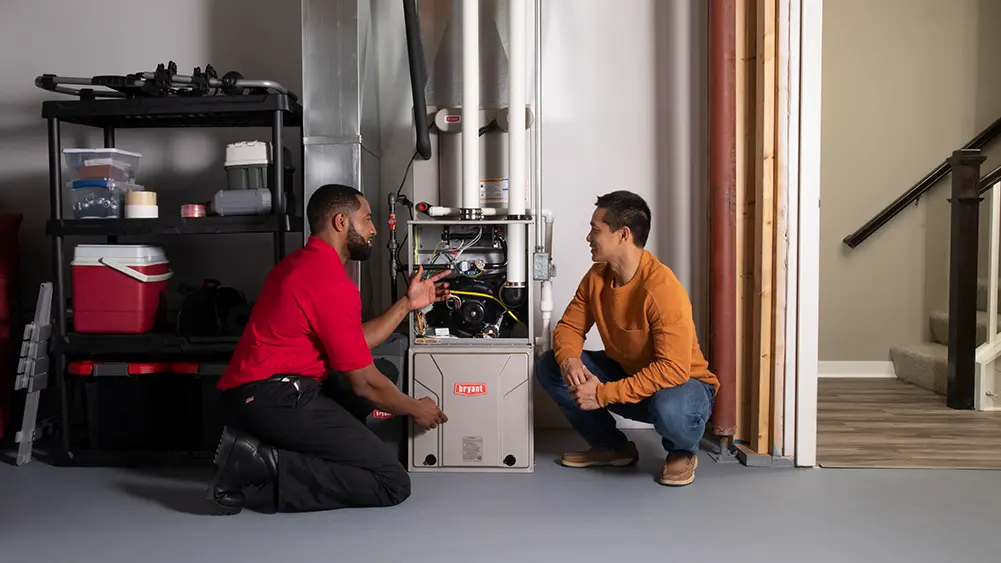How to Know If You Need a New Furnace
As the cooler seasons return, the last thing any homeowner wants is a furnace that can’t keep up. While a yearly tune-up can keep your system running smoothly for a long time, there comes a point where a replacement is the smarter choice. Knowing the warning signs that your furnace is failing can save you from a complete breakdown on the coldest night of the year and help you avoid throwing money away on endless repairs.
Here are the key indicators that it's time to consider a new heating system.
1. Your Furnace Is Nearing the End of Its Lifespan
Most furnaces have a life expectancy of 15 to 20 years. If your furnace is approaching this age, it’s a good idea to start planning for a replacement. Even if it's still running, an older unit will be far less efficient than a new one, costing you more in energy bills and becoming more prone to breakdowns.
2. Your Energy Bills Are Getting Higher
Have your heating costs been steadily creeping up without any changes to your usage habits? As a furnace ages, its efficiency naturally declines. It has to work harder and for longer periods to heat your home, which directly translates to a spike in your monthly utility bills. A new, high-efficiency furnace can significantly reduce your energy consumption and save you money in the long run.
3. You're Calling for Repairs Constantly
A one-time repair might be an easy fix, but a pattern of frequent breakdowns and expensive repairs is a clear signal that your system is failing. If the cost of a single repair is more than 50% of the cost of a new furnace, or if you find yourself calling for service every year, it's time to invest in a reliable new unit rather than pouring money into an old one.
4. You Hear Strange Noises
Your furnace should run quietly in the background. If you start hearing loud bangs, rattles, squeals, or groans, it's a major red flag.
- Banging could indicate a problem with the burner or a cracked heat exchanger.
- Rattling might signal a loose component or a motor on its last leg.
- Squealing often points to a worn-out fan belt.
These noises are your furnace's way of telling you it's struggling.
5. Your Home Isn’t Heating Evenly
If some rooms feel warm while others are cold, your furnace may be losing its ability to distribute heat effectively. This could be due to a failing blower fan or a more serious internal issue. An old, inefficient system simply can’t keep up with the demands of consistently heating your entire home.
6. Your Pilot Light Is Yellow
For gas furnaces, the pilot light should always burn with a strong, steady blue flame. A yellow or flickering flame is a serious sign of incomplete combustion, which can produce dangerous carbon monoxide. If you see this, turn off your furnace immediately, open your windows, and call a professional for an inspection.
If you've noticed any of these signs, don't wait for a complete breakdown. The expert team at Nugent Mechanical Contractors can perform a thorough evaluation and help you decide whether a repair or a new furnace is the best option for your home. We'll provide you with a transparent and honest assessment to ensure your family stays warm and safe all season long.
When to Repair vs. Replace Your Heating System
As the weather in Texas cools down, your heating system is about to go into overdrive. If you've noticed that your furnace or heat pump isn't performing like it used to, you're faced with a critical decision: should you repair it or replace it? At Nugent Mechanical, we help homeowners navigate this choice with a clear understanding of the factors involved.
Here’s a guide to help you decide what’s best for your home and your budget.
Consider the Age of Your System
The lifespan of a typical heating system is a major factor.
- Furnaces: The average lifespan for a gas furnace is between 15 and 20 years.
- Heat Pumps: The average lifespan is around 15 years.
If your heating system is nearing or has surpassed this age, the cost of a major repair may not be a wise investment. An older system is more likely to break down again, and you'll continue to face a cycle of costly fixes.
The "50% Rule" and Frequent Repairs
A good rule of thumb is to consider the cost of the repair relative to the cost of a new system. If the repair cost is more than 50% of the price of a new unit, replacement is often the more economical choice in the long run.
Additionally, if you find yourself calling for repairs every winter, it's a clear sign that your system is on its last leg. Frequent breakdowns and a rising maintenance bill are strong indicators that it's time for an upgrade.
Warning Signs That It's Time to Replace
Sometimes, a system is telling you it's ready to be retired. Look out for these common red flags:
- Rising Energy Bills: An old or inefficient system works harder to heat your home, leading to a noticeable spike in your monthly utility bills.
- Strange Noises: Banging, rattling, squealing, or humming sounds coming from your furnace often indicate a serious mechanical problem.
- Uneven Heating: If some rooms in your house are warm while others remain cold, it could be a sign that your system is losing its ability to distribute heat effectively.
- Yellow Pilot Light: For gas furnaces, a yellow or flickering pilot light can signal a serious safety issue, such as a carbon monoxide leak. If you see this, turn off your system and call a professional immediately.
The Benefits of a New Heating System
While replacing your system is a significant investment, it comes with considerable benefits that can save you money and improve your home comfort for years to come.
- Improved Energy Efficiency: Modern, high-efficiency heating systems can significantly lower your energy consumption, leading to major savings on your utility bills.
- Enhanced Comfort: New systems provide more consistent, even heating throughout your home, eliminating cold spots and improving overall comfort.
- Better Indoor Air Quality: Many new systems have advanced air filtration features that can help reduce allergens, dust, and other airborne pollutants.
- Increased Home Value: A new, energy-efficient heating system is a major selling point and can increase the resale value of your home.
We're Here to Help
The decision to repair or replace is a big one, but you don't have to make it alone. The expert team at Nugent Mechanical Contractors can perform a full inspection of your heating system and provide a transparent, honest recommendation based on your needs, budget, and long-term goals.
Contact us today to schedule a service and find the perfect solution for a warm and comfortable season ahead.


